Have you ever wondered if fish experience thirst? simply put, do fish get thirsty? The short answer is Fish don’t have a thirst sensation. Read along to find more
It’s something that many fish owners and enthusiasts have queried for years. After all, if we can feel parched, why not aquatic creatures? This article will examine the answer to this question and determine if Fish truly become thirsty.
Table of Contents
Introduction
Fish are captivating animals! They have changed over time to be able to live in different watery habitats, and they have modified to satisfy the necessity of their environment. They are often the star attraction of aquariums and fish tanks, providing loads of amusement for their owners. Do fish experience thirst, though? The response may shock you. It is correct that Fish can sense thirst, but it isn’t the same kind of thirst we feel. This article will investigate the answer to this query and determine if Fish feel thirsty.
Do Fish Get Thirsty?
Is it possible for Fish to feel thirsty? The response to this inquiry is somewhat convoluted, as indicated by a professor of fish physiology and aquaculture at the University of California, Santa Barbara. Fish don’t have a thirst sensation.
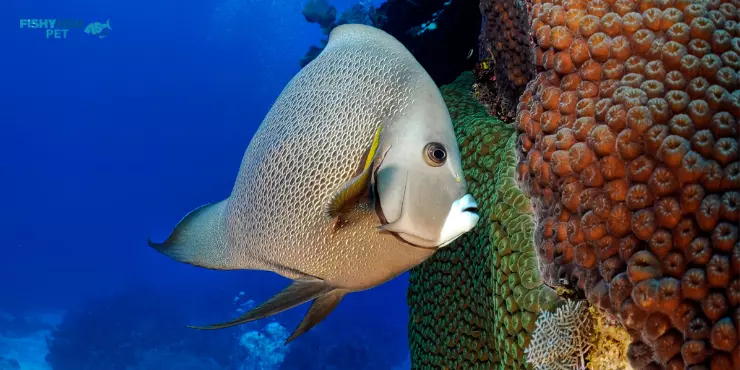
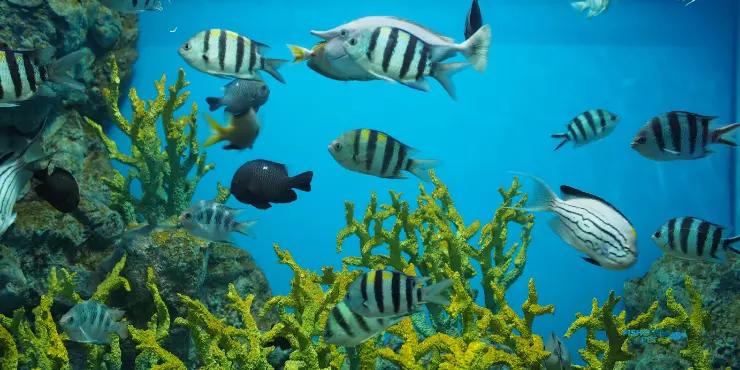
Freshwater Fish don’t take water into their mouths as it increases the risk of their blood being watered down. Then again, saltwater fish will routinely drink ample water to stay hydrated. This is on the grounds that the salt focus in the blood of these Fish is less than the water they are encompassed by, making them more vulnerable to drying out.
How Do Fish Stay Hydrated?

Fish can stay hydrated in a multitude of ways! They can absorb moisture through their scales, take in water from their surroundings, or munch on food that is high in water. Moreover, some species possess especially adapted organs that let them consume substantial amounts of water.
The most common way to stay hydrated is by drinking from the environment, whether in freshwater or saltwater. Freshwater Fish will drink from streams, ponds, and lakes, while saltwater fish will imbibe from the ocean. Exciting, isn’t it?
Do Freshwater Fish Drink Water?
Freshwater Fish do consume water! The majority of freshwater Fish must drink water on a regular basis for them to stay fit. This is because freshwater Fish are more susceptible to dehydration than saltwater fish.
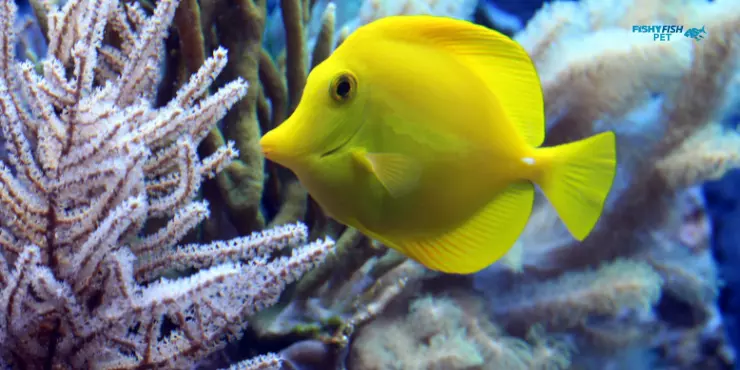
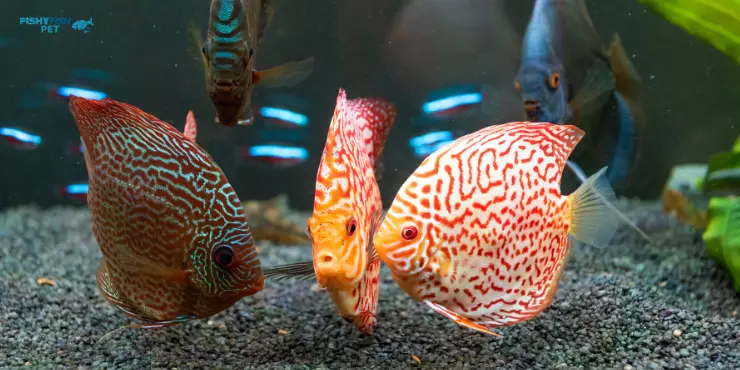
Freshwater Fish will sip from rivers, ponds, and lakes. They can even drink from aquariums as long as the water is kept clean and free of contaminants.
Do Saltwater Fish Drink Water?
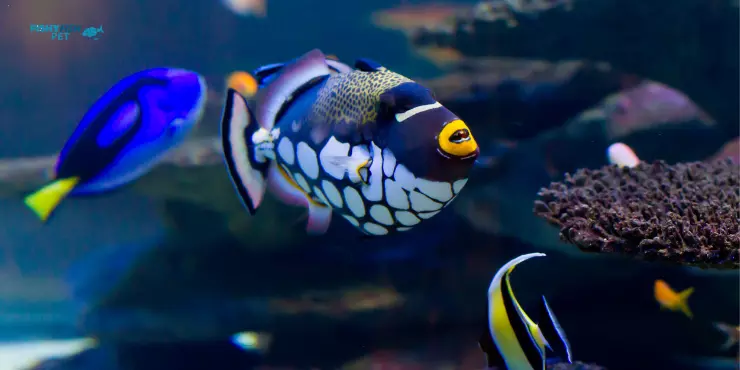
Absolutely! Fish that live in saltwater do, in fact, drink water, but they don’t require as much of it as freshwater Fish. This is because saltwater is more condensed than freshwater, enabling Saltwater Fish to draw in more moisture from their surroundings.
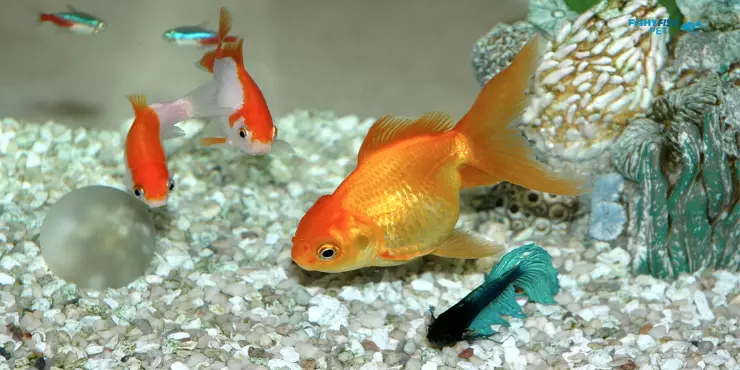
These creatures can take in water from the ocean and aquariums, though they’re more likely to sip if the water is pristine.
Do Cold-Water Fish Get Thirsty?

Cold-water Fish like trout and salmon are more resilient to dehydration than other fish species, so they require less water. But if their habitat is too hot, they can become parched and need to drink more to remain hydrated. Excitingly, this kind of adaptation helps them to survive!
Do Fish Drink When They Breathe?
No! Fish don’t take in water when they inhale, unlike us humans. Instead, they absorb oxygen through their gills, essential to stay alive.

Why Don’t Saltwater Fish Get Dehydrated?
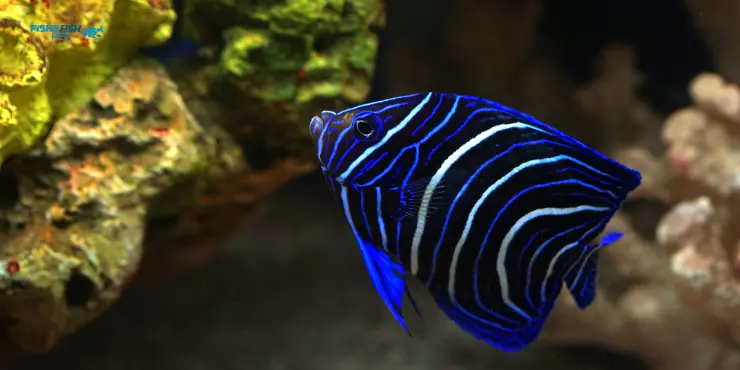
Saltwater fish don’t experience dehydration since they have the capacity to take in more water from their environment than freshwater Fish. This can be attributed to the increased density of saltwater compared to freshwater, which empowers Saltwater Fish to absorb greater amounts of water. Moreover, saltwater fish have evolved to fit their habitat by forming unique organs that enable them to quench their thirst with massive amounts of water in one go!
Can a Fish Get Dehydrated?

Absolutely! Without an adequate supply of water, a fish can suffer from dehydration. This can lead to various health issues, even causing death in the worst cases. To avoid dehydration in Fish, it is essential to maintain a suitable water level in the aquarium. Additionally, make sure that the fish are fed food rich in water content to keep them healthy.
Do Fish Drink Water to Live?
Absolutely, Fish require water to remain alive. But they don’t need to consume as much as humans. This is because Fish get a great deal of their moisture from their environment and food. Additionally, Fish have adapted to be more able to tolerate dehydration than us humans. So, they can go for a longer time without hydrating compared to us.

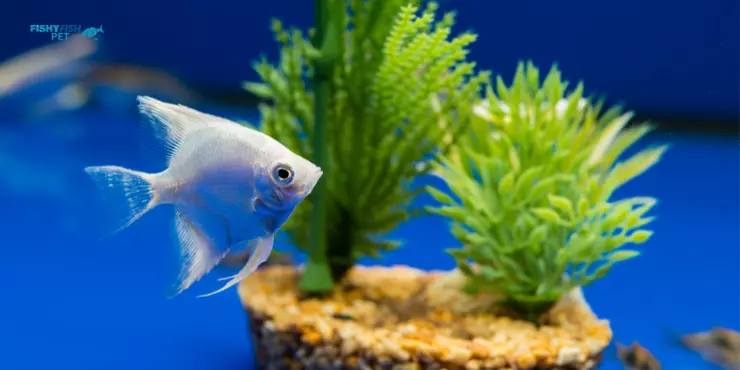
Do Fish Constantly Drink Water?

Absolutely not! Contrary to popular belief, Fish do not always need to sip water. In reality, typically, it’s only necessary for them to consume the water once a day for optimum wellness. This is because they take in most of the water their bodies need from their habitat and the food they eat.
Why Do Fish Not Get Thirsty?
Fish don’t experience thirst because they don’t have the same hormone and receptor setup as us. This implies that they are not able to sense the sensation of thirst like people can. But this doesn’t mean that Fish is immune to dehydration. Fish can still become dehydrated and need water access to remain healthy.


Conclusion
Fish don’t experience thirst as we do, but they can get dried out if they don’t have enough water. Keeping a healthy amount of water in the tank is essential to stop Fish from becoming dehydrated. Additionally, it is crucial to feed your Fish a nutritious diet that includes food items with high water content.
Do you have any curiosity about Fish and thirst? Our Website is the perfect place to look for more fish-keeping articles, such as product reviews, top-ranking lists, how-to-format questions, and other related articles. Exciting, isn’t it?
FAQs
Do fish get thirsty out of water?
Do fish ever get thirsty? This is a common question among aquarium owners. The answer is yes, but not in the same way as humans do. Fish do not have the same biological need to drink water that humans have, but they can still become dehydrated or lose water. Fish living in saltwater are able to take in enough water through their gills and skin to regulate their body fluids. This process is called osmosis. Freshwater and saltwater fish both rely on osmosis to stay hydrated, but freshwater fish are more prone to dehydration because they lose more water from their environment than those living in saltwater. To make up for this loss of water, freshwater fish will drink small amounts of water when they come across it. Saltwater fish usually don’t need to drink since they receive all the necessary electrolytes and minerals from the seawater they live in. So while fish don’t necessarily get thirsty like us, they do require sufficient amounts of water and salt levels to stay healthy and hydrated.
Do fish swallow water when they eat?
When fish eat, they take in a lot of water as well. Since they live in water, they need to drink a lot of it, but in order to keep the cells in their gills healthy and functioning properly, the concentration of salt has to be higher than that in the water. To help with this, fish actively drink water to dilute the salt levels and make them saltier. This is why both fresh and saltwater fish need to have access to both salt and water; they ingest it through their mouths. While most marine creatures require more salt than freshwater creatures, all fish need some sort of balance between salt and water. Freshwater fish require even more active drinking because they live in a much lower concentration of salt. While some may think that fish just swallow whatever is around them when they eat, they actually actively consume both salt and water so that their bodies can maintain the right balance for survival!
What happens when a fish gets thirsty?
When a fish gets thirsty, it needs to drink water in order to maintain its balance of salt and water. Marine fish do not actually need to drink a lot of water, as they are able to take in small amounts of water through their gills. This is the same process that allows them to live in salty ocean waters, by taking in the excess salt and excreting the excess water. However, they still need to drink water from time to time, and they do this through their mouths. As the fish drinks, the water moves from outside of its body into its cells where it can be used for hydration. Fish do not require as much water as other animals, but it is still important for them to drink regularly so that their bodies can function properly.
How do fish hydrate themselves?
The short answer to how to fish hydrate themselves is that they use much of the water around them. Depending on the type of fish, whether they live in fresh or salt water, they drink the seawater and absorb the surrounding water into their bodies. Fish are surrounded by water in the ocean and other bodies of water, so they take in a lot of moisture through their skin and gills which helps them stay hydrated. By conserving this water and constantly being surrounded by it, fish are able to stay hydrated without having to drink as much as other animals. In this way, fish can stay hydrated even if there is not a lot of fresh water around them.
Can fish survive without drinking water?
Fish are constantly losing water, so they need to be able to replenish it in order to survive. Marine and freshwater fish both need water for their survival. Fish that live in freshwater often ingest small amounts of water between meals, while fish living in salt water rely on their gills to take in oxygen and other minerals from the surrounding environment. This means that the water is actually drawn into the body of the fish and used as a source of hydration. Thus, even though fish do not drink as we do, they still require some form of hydration in order to stay alive. To sum it up, fish can survive without drinking water but they depend heavily on their environment to provide them with the necessary amount of moisture for their survival.
Does Science provide an answer to the question of if fish feel thirst?
The appliance of science helps answer many questions, and one such question is: do fish ever get thirsty? The answer to this question is yes, fish do indeed get thirsty. This may be surprising since they live in water, but the truth is that their bodies produce small amounts of water and then lose more than they take in. This means that they get thirsty just like any other animal would, and need or desire to drink water. Fish seek out and drink both fresh and saltwater when they feel the need or desire to drink. So while it may seem strange that fish need to drink water even though they live in it, the appliance of science has helped us understand that just because a creature lives in water doesn’t mean that it doesn’t get thirsty.
Do Fish Experience Thirst and Why Can’t Freshwater Species Dwell in Seawater and the Other Way Around?
Fish of different types are continuously exposed to water through their gills, so you might think that they have a strong urge to drink the water they probably don’t. However, fish don’t actually drink the water as we do; instead, they absorb it through their skin and gills. This is why fish can’t really get thirsty in a way that we understand. The salt concentration in the water around them is constantly monitored by their body, which enables freshwater and saltwater fish to survive in both kinds of environments. A freshwater fish would not be able to live in saltwater because its body wouldn’t be able to cope with the higher levels of salinity, and vice versa for a saltwater fish. So although fish may not drink water in the same way as we humans do, they still need to remain hydrated by absorbing it from their environment in order to survive.
Do fish consume salt water when they become dehydrated?
when fish get thirsty do they drink seawater? Fish actually do drink the water that surrounds them, however, they don’t drink much of it because it is very salty. This can cause their blood to become too diluted with salt if they ingested too much. To prevent this from happening, fish have a process that allows them to pass excess salt and water out of their bodies. Those fish that live in freshwater actually do need to drink as much as possible and filter the water they live in to extract oxygen from it. They also use the same process to filter out any toxins or waste products that are present in the water. In some cases, fish will even actively seek out sources of fresh water so that they can supplement their intake of oxygenated and clean water. All in all, depending on where the fish lives, it will either actively seek out or passively absorb the necessary amount of fresh or saltwater for its needs.
Have you ever contemplated the fact that aquatic animals require water to quench their thirst?
Have you ever wondered how creatures living underwater fulfill their thirst? Well, just like us, water is essential for them too. Animals that live in the water possess a special process of taking the water they need from their environment. Fish that live in freshwater have evolved to actually drink the water they need to survive. On the other hand, fish that live in saltwater environments must rely on a balance of water inside and outside of their bodies. The process works when they absorb salt water and then excrete it while also absorbing the necessary amount of fresh water into their body cells. To put it simply, as the saltwater flows through their system, they are able to maintain an internal balance by absorbing only the right amount of freshwater. Surprisingly enough, this answer is still somewhat unknown by scientists; however, what we do know is that these animals are capable of maintaining life without ever having to physically drink water like we do.
What is the process by which freshwater fish take in necessary moisture?
Freshwater fish never get thirsty, as they absorb the water they need through their skin. This process is known as osmosis, and it works by balancing the amount of salt and fresh water around them. When they are surrounded by freshwater, they absorb it to maintain a balance with the outside environment. If there is too much salt in their environment, they will lose water to maintain the balance. It’s different for saltwater fish, which live in saltwater and are able to regulate their internal levels of salinity by drinking seawater and excreting excess salts through their gills. The same process happens with freshwater fish, but since there is less salt in freshwater than seawater, they don’t have to drink or excrete as much to maintain a balance between the two. So whether you’re looking at freshwater or saltwater fish, both types of fish rely on osmosis for absorbing the required amount of water into their bodies without ever getting thirsty!
Does a fish consume water?
The answer to whether a fish drinks water or not is yes. Fish do drink water through their mouths, as they need to maintain a balance between the water they obtain and the salt they excrete. Saltwater fish have a higher concentration of salt in their bodies than freshwater fish. This means that saltwater fish are more likely to excrete more salt than freshwater fish, so they must take in more water to compensate. Freshwater fish live in an environment with less salt and must conserve water by drinking it through their mouths. As such, all species of fish can drink water through their mouths, although some species may be better adapted for this process than others. In conclusion, all types of fish can and do drink water in order to maintain a healthy balance of salt and water within their bodies.
Do marine fish consume water, does that mean they become parched?
Saltwater fish do drink water, but does that mean they get thirsty? Fish absorb water through their skin, and just like us, they need water for their survival. Fish that live in freshwater are the ones that would be more likely to get thirsty. What this means is that the water between their body and the environment is not replaced as often as it would be in salt water. In order to keep hydrated, these fish will have to take in more water and then produce small amounts of salt from their gills in order to maintain osmotic balance. As for fish that live in salt water, they probably won’t get thirsty, since the salt concentration outside of their bodies is usually lower than inside.
Why do marine fish consume a lot of liquid?
Saltwater fish need to seek out and drink water because of the salt in their blood. Different types of fish have different needs for water, but all of them need to drink it all the time. The salt in their blood causes the fish’s body to try to dilute its blood by passing excess water out through its gills. This means that the water the fish lives in needs to be replaced with fresh water so that it can process the water and maintain a balance. To do this, they drink fresh water constantly, so that it flows through their systems and helps keep them healthy. Without drinking enough fresh water, saltwater fish will suffer from dehydration.
Fish such as salmon, traverse both freshwater and seawater.
Fish like salmon are known as “freshwater fish” because they swim through both freshwater and saltwater. They absorb water from the environment they live in to dilute their blood, so they need to be in contact with water all the time. This is why they can be found between both types of water, as they need to keep moving between them in order to survive. Fish that live in freshwater also need to move around a lot and be close to the water in order for them to get the right amount of salt and oxygen; without these two elements, it would be impossible for them to survive. Water is essential for our survival too – without it, we cannot exist either. Therefore, it is important that we appreciate the amount of energy and effort that fishes like salmon put into swimming between freshwater and saltwater in order to ensure their survival.
Adam Smith
Senior Editor of FishyFishPet.com
I am a passionate writer for FishyFishPet, a website dedicated to helping fish pet owners of all levels learn about the best practices for caring for their aquatic companions. On our site, you’ll find a wealth of information on everything from choosing the right fish species to setting up a healthy and thriving tank ecosystem. Whether you’re just getting started with fish ownership or you’re an experienced aquarist looking to expand your knowledge, FishyFishPet has something for everyone. Thank you for stopping by and I hope you find our site helpful and informative.


